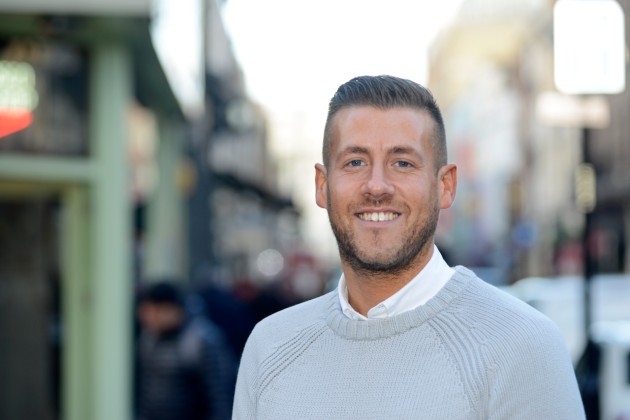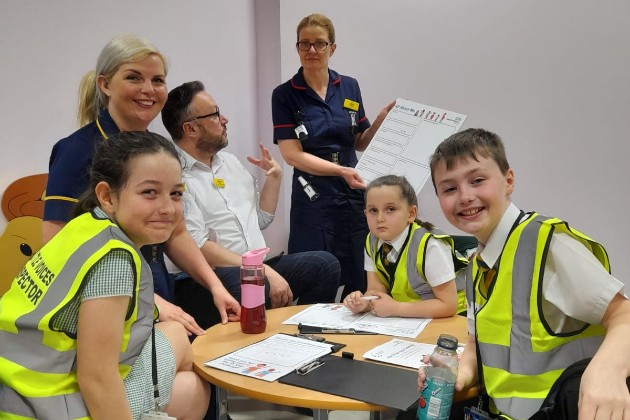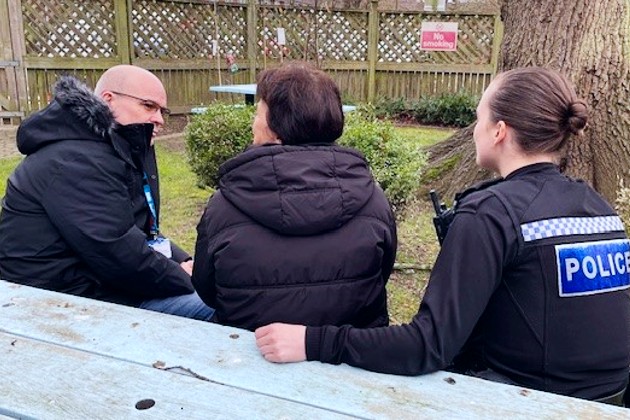During a short placement on an oncology ward, caring for patients experiencing side-effects from treatment, third-year nursing student Heather Massie faced a major decision.
“At the end of the second week, the ward changed to looking after COVID-19 positive patients,” she says. “I had a choice about whether I continued with the placement or not.” Initially she admits she was anxious. “But then I began to think through what I needed and whether it was available. All the safeguards were in place and the ward manager was really supportive. I was given everything, including scrubs and face masks.”
But it’s still been hard. “I’ve had a couple of really tough days,” says Heather. “Someone passed away and the family was unable to visit because they were self-isolating. I was with the patient, holding their hand and making sure they knew they weren’t alone. That really got to me.”
Communication challenges
Her style of nursing has also been impacted by the virus. “I like to interact with patients and have a quick natter. But that’s very difficult now,” says Heather. “You’re trying to give them an element of social contact, but they can’t see your face properly because of the masks. It makes it very hard to communicate.” Her trust has invested in smart phones and tablets, enabling patients to keep in touch with their loved ones. “We can see it’s lifted their mood,” she says.
But despite the emotional challenges, she’s opted to do an extended clinical placement, which is due to begin at the end of April. In the final six months of their programme, both nursing students and midwives can now choose to complete their training in an appropriate placement setting.
I still worry about bringing COVID-19 home
“It was a difficult decision,” says Heather. “I’m a little bit frightened. I live with my parents and even though they’re not in the high-risk category, I still worry about bringing COVID-19 home. When we get beyond lockdown, there will be still be members of my family who I can’t visit, and that will probably apply to my parents too because they live with me. But my parents understand entirely and are brilliant. Some colleagues have had to move their children in with other family members and that’s very hard.”
Tough decisions
In practical terms, students have been asked to choose their ward preferences or say whether they’ve already had job offers from particular areas, with the trust trying to match them. “If I didn’t take this option, I would have to defer the practice hours I need until after the pandemic is over - and we have no idea when that will be,” says Heather, who will also have to do assignments alongside working fulltime.
As the student member of the RCN’s Trade Union Committee, Heather has also been involved in discussions about how the new scheme for final-year students works in practice. “We’ve been looking at whether students who opt to do this extended placement are employees and should be paid,” she says. “The agreement is that’s what will happen.”
Other issues include the lack of personal protective equipment (PPE) reported by many nursing staff. “As nurses, we don’t let our patients go without, but that shouldn’t mean we have to risk our own health to help them,” says Heather. “If we can’t deliver the care they deserve, we feel we’ve failed. Nursing staff on the frontline are often between a rock and hard place. We need to get these challenges resolved as quickly as possible, so we can protect our staff.”
Supportive peers
Heather has found being a member of the RCN Students Committee really supportive during these difficult times. “We’re touching base with each other every single day to help us get through,” says Heather. “My work colleagues are really supportive too. It’s all very much day-by-day, shift-by-shift."
Time for reflection can also be at a premium. “Sometimes there is time to process what’s happening around you, but often I have to put it aside for a while, so I can finish the tasks that need to be done,” says Heather. “Afterwards I’ll give myself five minutes, so I can feel grounded again. Psychologically, I don’t feel many of us are prepared enough. When I come home, I try to tune out and we’re all trying to make sure there is the chance to wind down.”
But amidst the sorrow, there are some uplifting moments too. “At my trust, one patient in his 90s recovered and went home,” says Heather. “It really warmed me to see something positive. It made my day."
Find out more about the latest guidance for nursing students.








